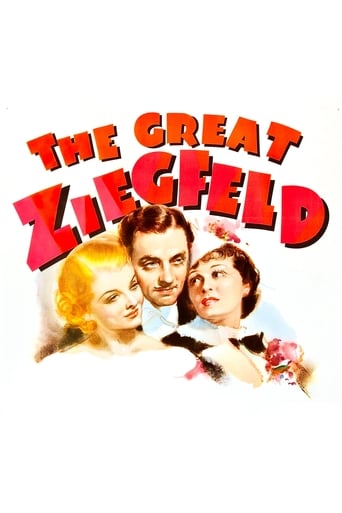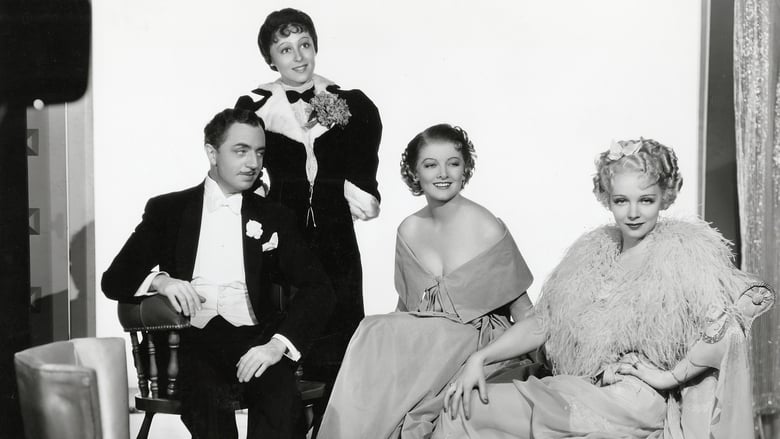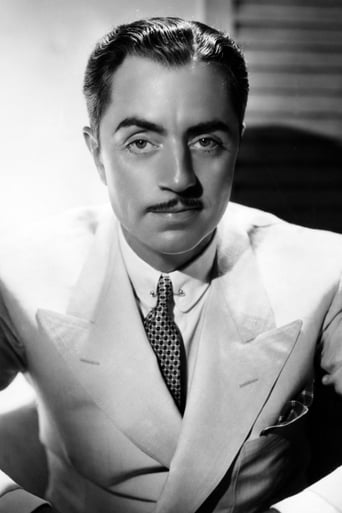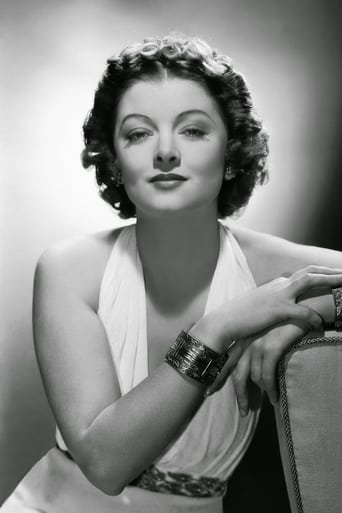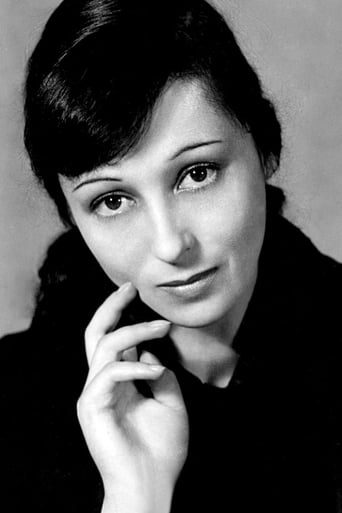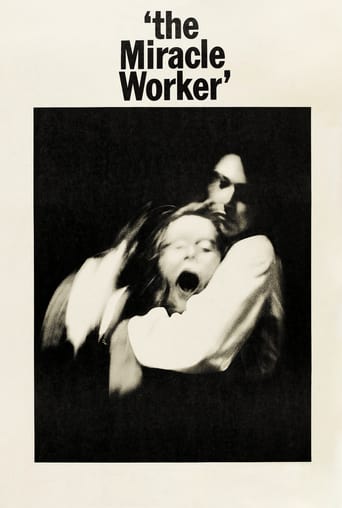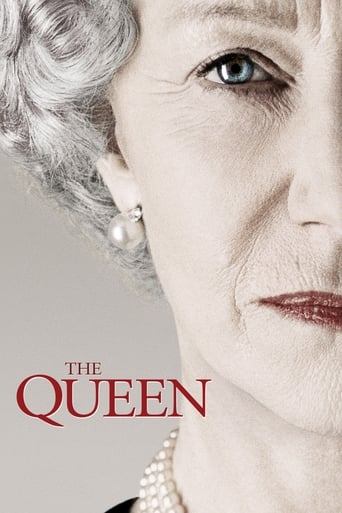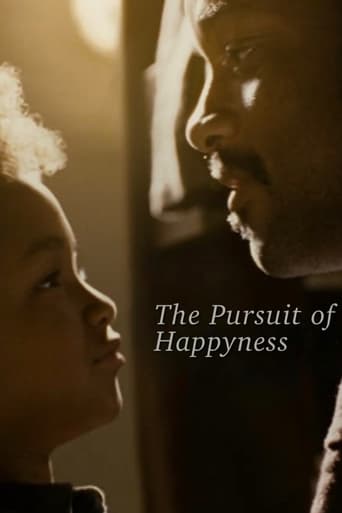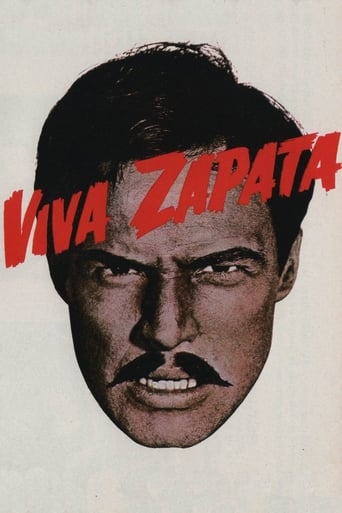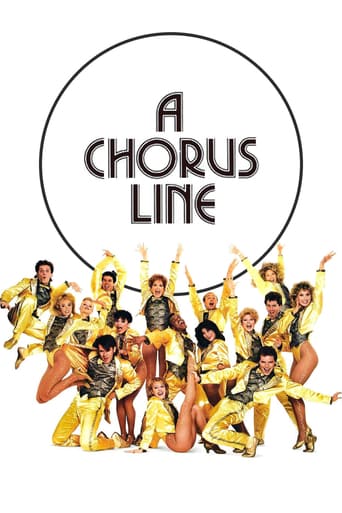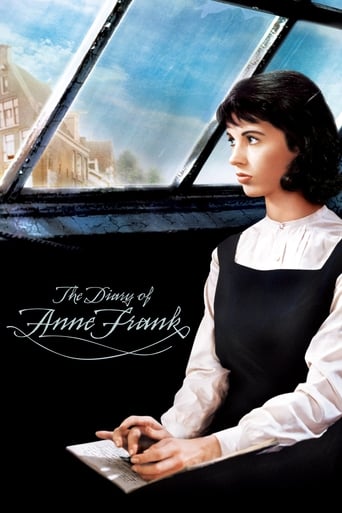The Great Ziegfeld (1936)
Lavish biography of Flo Ziegfeld, the producer who became Broadway's biggest starmaker.
Watch Trailer
Cast


Similar titles
Reviews
In the grand tradition of MGM and only 4 years after Ziegfeld's death, came this biographical film of his life. What a life it was, as this film proves over and over again. William Powell is the absolute perfect choice to play the great showman. He never got as rich as his name seemed to indicate he would be, but he is portrayed with a heart of solid gold. Terrific in support as always, Frank Morgan here has a bigger role as Ziggy's foe than even the Wizard of Oz could imagine. He plays it perfectly, as the bombastic Morgan is at his best in this one. The women, especially Myrna Loy are good too. The listed cast is nowhere near as long as the unaccredited one which says something about the size of MGM when this was made.Considering the lingering effect of the depression, MGM, like Ziegfeld took a major bath on this film. Of course as the film goes, Ziegfeld spent money faster than he could make it, yet continued to defy the gravity of his being broke and did more on the live stage than any other Producer of his time. His life is like this film production, huge and over the top. This is a 5 star film in every aspect, and one of the better tributes to live theater on Broadway before and after the depression ever made. Shows like Rio Rita, Showboat, and others were magnificent and some of them led to movies. It is hard to imagine what would have been different without Ziggy's Follies, and Canter, WC Fields, and so many others who became stars in his era, in his shows. The cameo by Fanny Brice is one of her all too few film roles and is not to be missed. The same is true of this film.
During the 1893 Chicago World's Fair, sideshow barker Flo Ziegfeld Jr. (William Powell) struggles to promote strong man Eugen Sandow. He beats his rival Billings by smart marketing on Sandow. It's the start of his long career of promoting vaudeville acts as he gains success and loses big over and over again. His first wife is French star Anna Held (Luise Rainer) who he signed stealing away from Billings. She gains publicity with Flo sending 20 gallons of milk for a fictional beauty treatment everyday. His next star is the alcoholic Audrey Dane who breaks up his marriage. Borrowing from Billings again, he produces a new show with Broadway star Billie Burke (Myrna Loy) and later marrying her and having daughter Patricia.This is a long giant Hollywood extravaganza to proclaim its love of Ziegfeld. It has all the lavish production that such a thing entails. It can get long-winded at 3 hours but it's not a small life. In fact, it fits the man to have a long big production. It does bring out the up and down life of a vaudeville hustler and the old idea that bigger is always better. It's the perfect big production for the producer who loves big production. William Powell does a fine impresario of hucksterism and imagine making.
"The Great Ziegfeld", an autobiography of the eponymous Florenz Ziegfeld Jr., was a great success in its time. At almost three hours long, the film illustrates pretty much the man's entire career, from the 1893 World's Fair until his death in 1932. Chronicling his relationship with various acts and his creative use of marketing to win over rival Jack Billings (Frank Morgan), we also watch his romantic interest in Anna Held (Luise Rainer) develop, whom was initially an act he signed on. After the two of them marry, in 1907, his most famous and successful production, "The Ziegfeld Follies", begins.One of the themes in Ziegfeld's life is his need for more shows, more success, more glitter and glam. This is both his crowning glory and his downfall, as it leads to his great successes, but also to his eventual end. He is always looking for more acts, more girls to fall in love with, more audiences to impress. By 1913, Anna has decided to file for divorce. Always the playboy, Ziegfeld soon marries another actress, Billie Burke (Myrna Loy), and they have a daughter. As times change and live stage shows become less popular. Ziegfeld is forced to borrow, then partner with his former rival. Various scenes are unnecessary (especially those of the early years in his career, as he tries to begin a relationship with Anna Held (Luise Rainer)), as well as the numerous lavish dance and song numbers, which are entertaining at first, but all blend together as one by the end of the film. The real life man is best known for "The Ziegfeld Follies," also the best produced aspect of the film. About thirty minutes of footage from this production are illustrated. Other notable scenes include Ziegfeld facing bankruptcy during The Great Depression, eliciting an emotional moment for the audience. The dramatized version of his death in the closing scene is also notably representative of the man's entire life and career, although obviously unreal. Ziegfeld hallucinates his "glory days", his last words being, "More steps. Higher! Higher! Higher!". Entertaining at times, but much too long, this film accurately describes an iconic man. The problem is that with his real-life wife overlooking production, the accurate characterization was missing the flaws every man has. The result is a film that seems all to much like fiction.
This is one of those films that I remember watching on television when I was a kid...half a century ago...and the movie still glitters now over 70 years after it was made. This is a true classic.That's not to say it's a perfect movie. My major objection is Luise Rainier's portrayal of Anna Held. How this performance won the Academy Award, I just don't know. I guess I'll just attribute it to tastes of a different era that we, today, can't quite comprehend. In reading a few articles about the film, I discovered that Rainer's performance has been reexamined by critics and often found today to be a key example of overacting. I couldn't agree more. Perhaps it was her overacting in this film that made the locusts attack her in her follow-up movie, "The Good Earth". Perhaps there is karma, after all. And, the movie is 186 minutes long (depending on the cut). But, there is a reason for that. MGM made a logical decision -- to make it a real biography, but also to make it a musical that highlighted the type of production numbers that Ziegfeld is so famous for. So while either could have made a 90 minute movie, together they make a 3 hour movie. It's fine, just be prepared to perhaps watch the film in two sittings.The cast, for its time, was very strong. William Powell felt this was his finest performance, and he was probably correct, although many remember him more for his acting in the Thin Man series. But I have always most associated him with his role here as Florenz Ziegfeld. The death scene here is one that I never forgot after many, many years. Quite impressive and poignant.Powell's partner in the Thin Man series -- Myrna Loy -- plays Billie Burke here (the Good Witch in "The Wizard Of Oz") who married Ziegfeld later in his life. They had completed the first of the Thin Man films 2 years before this film, and did more Thin Man films after this. Their chemistry is rightfully legendary. The surprising thing is that, although she gets second billing, Loy does not appear until 2 hours and 15 minutes into the movie! One of my all-time favorite actors has a major role here -- Frank Morgan as a friendly Ziegfeld rival. In most films, Frank Morgan plays Frank Morgan, and here is no exception. But his performance only adds to the luster of the production. He has one of the main parts here that were not based on an actual person, but the part seems to signify that, despite his craftiness, Ziegfeld was well-regarded by associates.Several performers portray themselves -- Fanny Brice and Ray Bolger, for example (although, apparently Bolger never actually performed in a Ziegfeld production). The big disappointment is that although Brice sings a couple of numbers, just a couple of bars into "My Man", the scene dissolves! Major mistake by the director! Nat Pendleton plays Eugen Sandow, and the Sandow sub-plot here pretty much follows real life. In fact, if you read the Wikipedia bio about Ziegfeld in advance, you'll find that the film somewhat accurately follows Ziefeld's life...in broad strokes.I doubt you'll find her, but Pat Nixon -- as in Mrs. Richard Nixon -- is a Ziegfeld Girl in the film, though she was not credited.While Luise Rainier's role is annoying, and the movie is long, it's still a very worthwhile journey to take. This was one of MGM's top films of the 1930s, and it still deserves the "classic" status it earned all those years ago. Sit back and savor great film-making.P.S. You'll notice that in a few scenes, the film stock is quite degraded (scratchy looking). My guess is that the DVD started with the 176 minute roadshow version print, which was missing 9 minutes that was in the original version, and that those 9 minutes were found in the original version of the film, but were not in pristine condition. Don't worry, it's not a problem for those few minutes of somewhat degraded film quality...it's still very enjoyable, but you will notice it.

